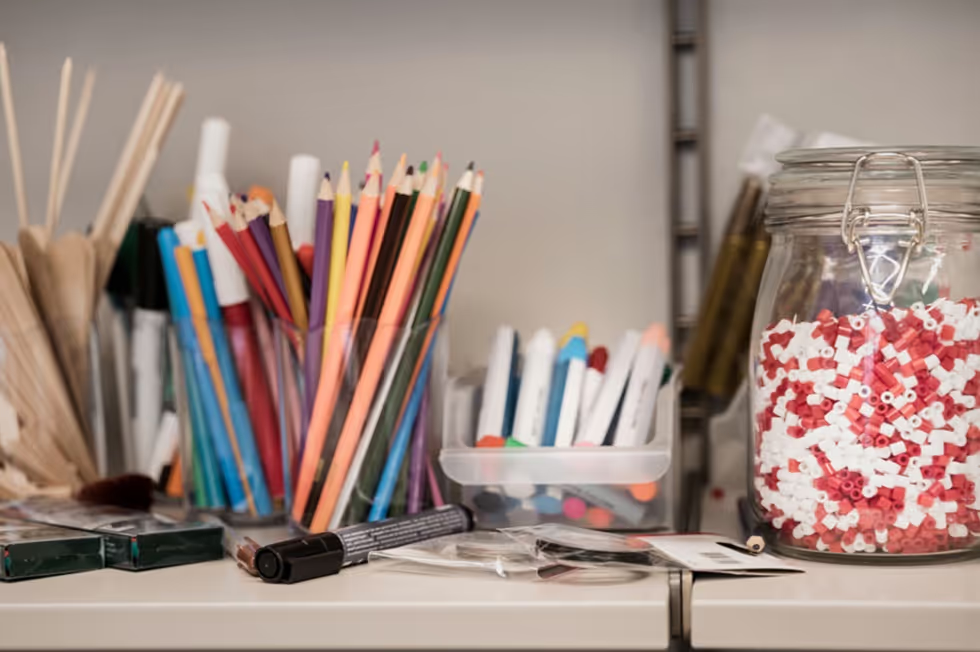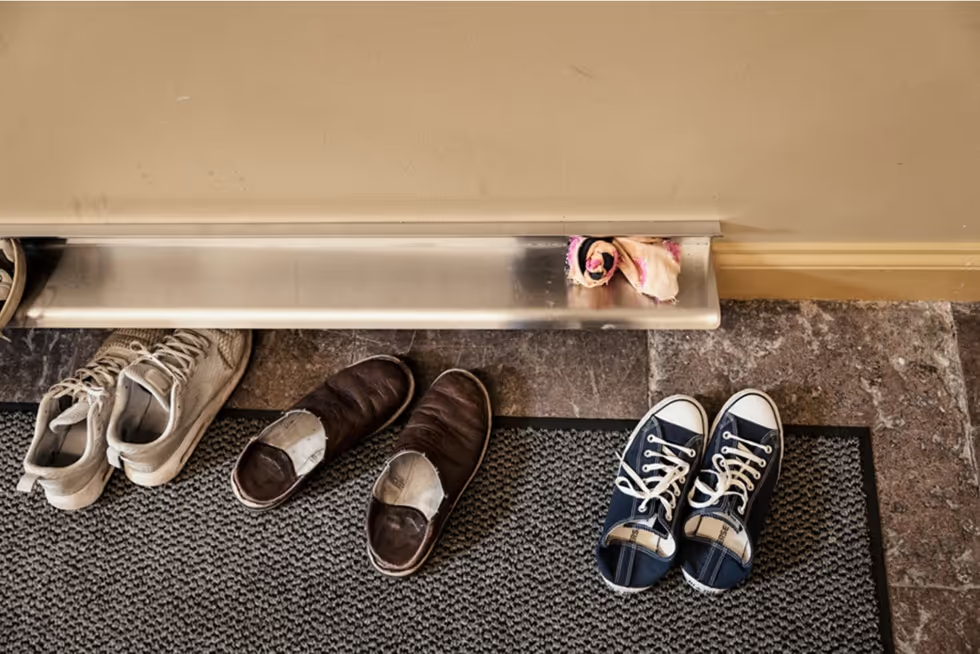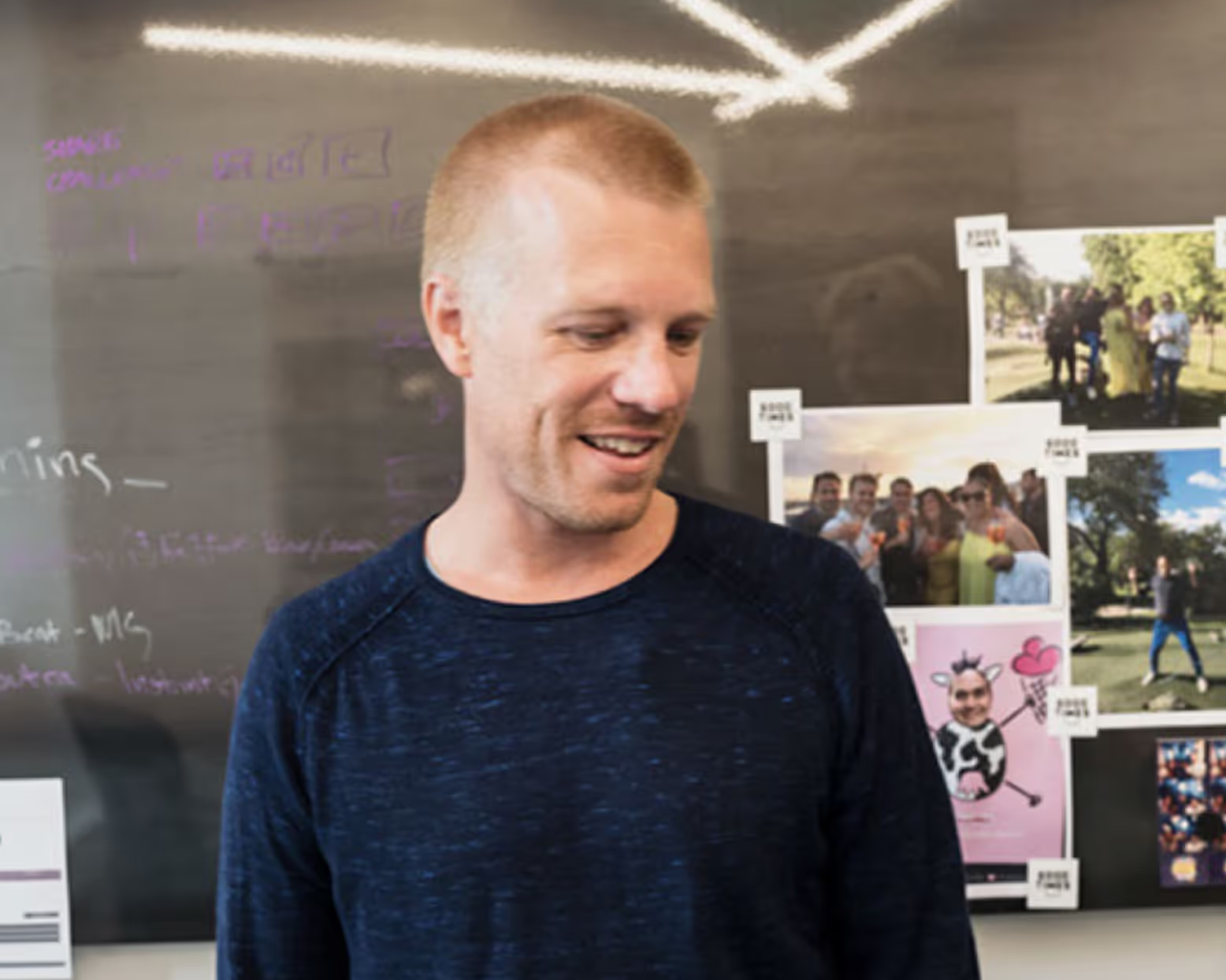Listen now
Back in the 1990s, Daniel was working in a company owned by Ericsson, when two guys he knew came by his desk to ask him to join a project they were starting. That project became their first company together. 18 years, numerous failures and three companies later, MAG Interactive is thriving.
DH: I think the way our story unfolded was a mix of luck, good timing as well as seizing a clear opportunity. When the iPhone came out in 2007, we noticed that it was a platform on which we could really focus on the user experience when creating games.
We didn’t have money to market our games back then — or to keep on going for much longer than a few months with the resources that we had. But we knew how to develop games, so we scoured the then-empty market for the emptiest spot. Localised word games weren’t a big thing back then and nobody cared about making games in other languages than English, so we gave it a try since a word game was something we could do with our small team of four in a matter of months. Once we took that approach and started developing word games, the first game we created was Ruzzle. It came out in 2012 and became our first hit title.

The early signs of a breakthrough
DH: Our first prototype for Ruzzle was built in a day or two and when we started passing it around, we immediately found depth from it. We then shared the game with our friends and family and tracking their usage, we soon noticed that people were not just trying it out to be polite — some played twenty games a day! That’s when we realised that we had something interesting in our hands. We were quite clueless, though, and we had no idea how to create traction in the app store since it was a fairly new platform then.
We launched Ruzzle on the 9th of March 2012 and within a few days, not having done any marketing whatsoever, we were number one in the Swedish app store.
"When we suddenly hit a million downloads in three weeks, it dawned on us: Ruzzle could become really big."
Before we knew it, it was spreading to Norway, Denmark and Holland, where we were also really well localised. We kept on getting a million players every month, and by the end of the year, we’d had eight million downloads.
One day, we were sitting at a Mongolian restaurant a few blocks from here when one of the guys noticed that we had started to get traction in the US. We’d had 500 downloads that day, whereas the day before it was 200 and the day before that a mere 50. We got quite excited — perhaps it could work in the US, too. The numbers started doubling until January when we hit a million downloads per day. Proper organic growth, I suppose!

Managing through growth with Ruzzle
DH: At first, it was difficult to focus on actual work, since we were staring at the analytics programme every day, seeing the numbers double over and over again. We got so fixated we had to turn the programme off to be able to get our work done! Looking back at how we managed through the explosion with Ruzzle, there are many things we could have done differently but one big source of support was our peers.
"The game industry is very open and generous and our so-called competitors have been our sturdiest support network."
We’ve been out at a lot of conferences sharing our thoughts on which partners to work with or which markets are the most fruitful ones. We’ve discussed experiences on game developing and struggles with building our companies with our peers — but also just made friends. We’ve always been keen to share what we’ve learned and people around us have done likewise.
"It’s been a collective coming-of-age."
Nobody knew how to make a good free-to-play game five years ago, so we’ve been learning in parallel with our competitors. Learning is a key component in staying afloat in this industry — in order to stay on top of your game, you need to keep on learning. What worked in 2014 no longer works today.
When we started growing, we tried to do things the traditional way, but the shoe didn’t really fit. For a while, we had a traditional hierarchy with people who ran teams and managers in charge who coordinated those teams. In my opinion, it slowed us down immensely. The best ideas often don’t emerge when you know that someone else will have the last word. With a flat organisation, we can make sure that everyone thinks for themselves. Once a month, we gather to go through the ins and outs of the company. This new way of working has been really exciting for me. It’s been exhilarating to get to investigate whether it’s possible to build a truly flat organisation — one where people work without anyone telling them what to do. It has been incredible to see that it’s doable and that we can find common incentives, values and goals. It took us at least a year to rewire our organisation and become fast again, but it’s really been worth it.
All in all, it’s been a crazy experience. Sometimes I see people on trams, metros and buses playing Ruzzle. For instance, in Italy, half of the population has downloaded Ruzzle onto their devices.
"We get around sixty to seventy thousand new customers every day — that’s enough to fill Wembley, all day, every day."

The everyday innovation formula and remembering to have fun… and play
DH: One of the biggest challenges in our industry is that most game ideas simply aren’t good enough. If you go with the first idea you have, you’re going to fail. So, in order to stay successful, you need to be able to fail many times a year. We’ve built that idea into the way we work and every five weeks, we hold a hackathon at our office. From Wednesday to Thursday, people do whatever they want and on Friday morning, we meet for breakfast to showcase the games we’ve created. A lot of our games are first built with physical attributes and tools — legos, pens and paper. We avoid computers so that the process is more about the idea than the execution. If the idea is really good, it will be fun on pen and paper, too. Our hackathons are also a way to enforce transparency and flatness, since everyone participates in them, no matter what their profession. Even employees who work in the finance department or in the reception get to participate and get creative. You don’t have to be a programmer to be a part of the creative process. After all, we make games for people who aren’t gamers, so it’s amazing to have everyone involved in the ideation process.
We have a tagline that we use internally which is ‘good times’, at the end of the day, that is what flows through everything we do. We want both our players and our team to have a good time. I know a couple that got married having met on Ruzzle, that’s probably the biggest thing we have achieved.

.svg)






.svg)




.avif)

